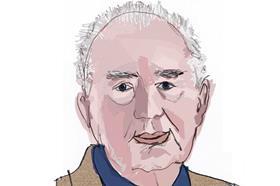The current fashion for claiming diminished responsibility after slaughtering your partner or neighbours in sight of a CCTV camera is nothing new. It is only a variation of the defence of crime passionnel.

Credit for the defence goes to Edwin Stanton, appearing for fellow US Congressman Daniel Sickles of New York who married Teresa, the daughter of an Italian opera singer. In 1859 he killed his wife’s lover, the lawyer Philip Barton Key II.
Sickles shot Key in Lafayette Square, Washington, and immediately surrendered himself to the attorney general claiming he had been driven temporarily insane by his wife’s infidelity. The papers were on his side and, with Harper’s Magazine suggesting that Sickles was a hero for ‘saving the ladies of Washington from the rogue named Key’, he was acquitted in less than an hour.
By the 1870s temporary insanity was known as the ‘Murderer’s Defence’ in New York. When Robert Bleakley was facing trial for killing his niece, who refused to leave the brothel where she worked, the Brooklyn Daily Eagle thought, ‘he has no defence which means the insanity defence will be set up’. He was duly acquitted.
But the tide turned. In 1906 Harry Thaw, a millionaire playboy, shot the architect Stanford White on the roof of Madison Square Garden. The defence was temporary insanity with Thaw driven out of his mind at the thought that years earlier his wife Evelyn had been seduced by the degenerate White.
The first jury disagreed, with seven wanting to convict Thaw of first-degree murder. When at the second trial Thaw was found not guilty, he expected to be released immediately but the judge would have none of it. Thaw was in and out of mental institutions fighting legal battles over his sanity for much of his life. He was recaptured after escaping from the Matteawan State Hospital for the Criminally Insane and fleeing to Canada. He was later accused of beating a young boy and also a chorus girl.
Thaw died in 1947. So much for the temporary insanity defence.
James Morton is a writer and former criminal defence solicitor































No comments yet